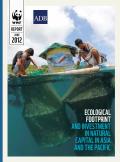A survey was sent out in August 2011 to 135 United Nations Country Teams (UNCT) to collect information on how the United Nations at the country-level supports Member States to further the Rio+20 themes - green economy in the context of sustainable development and poverty eradication, and the institutional framework for sustainable development.
While many types of activities are being supported, environment seems to be the most frequent point of departure, suggesting more work is needed to ensure a balance among the environmental, social and economic dimensions of sustainable development. A number of suggestions to improve country level service delivery were identified by respondents. Key challenges and gaps that hinder supporting sustainable development themes were also cited.

The widespread loss of natural ecosystems and biodiversity is much more than a conservation issue. Natural ecosystems provide socially and economically valuable services, such as food and fiber resources, clean water and climate regulation, that are fundamental to human welfare, but are often overlooked in decision-making processes.
Produced through a partnership between ADB and WWF International, this report provides examples of promising approaches for sustainably managing natural capital in the region. These are based on experiences from four important regional cooperation initiatives, which demonstrate the commitment of the participating governments to protecting the integrity of natural ecosystems while improving livelihoods and reducing poverty.
This paper firstly reviews the emerging literature on green growth, with a focus on the origin and meaning of the concept, as well as the justifications for and criticisms of the concept. The general idea of taking into account the impact of economic growth policies on the environment is not very controversial, but the possibility of simultaneously achieving conventional GDP growth and environmental protection is debated. It then discusses how China might move on to a green growth path. It summarizes a sizable literature that traces China’s rapid economic growth and the associated environmental problems to its unique and fundamental institutions, and discuss the implications of this on how China might grow more sustainably.
This study shows how transport affects social, economic and environmental sustainability. It deals with issues and best practices for inland transport, namely road, rail, inland waterway and intermodal transport. It also outlines UNECE contributions and reviews progress towards the development of more sustainable inland transport.
This publication suggests solutions that can be built into the design of urban development projects undertaken by the Asian Development Bank (ADB) to address the common problems and grievances of the urban poor, and to improve urban governance overall.
It also identifies successful or promising community-based approaches to dispute resolution that can be useful in urban project design.
It uses ADB's Governance policy as a framework for analyzing key findings of Access to Justice for the Urban Poor, a regional technical assistance grant to four developing member countries in Asia and the Pacific - Bangladesh, Indonesia, the Philippines, and Thailand. The findings consist of case studies illustrating typical problems encountered by the poor in connection with access to urban assets and services, and identifies the types of grievances or disputes that may arise because of these issues. The publication reproduces key case studies to illustrate significant concepts.
